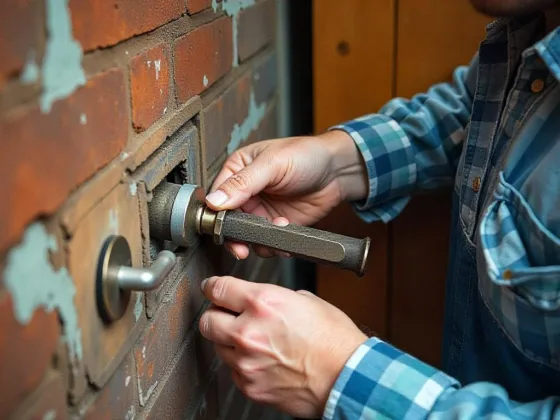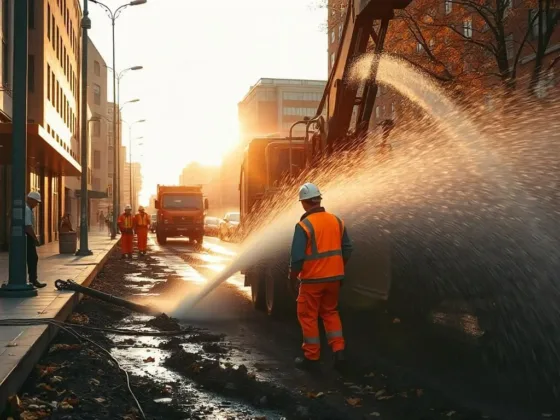Table of Contents Show
Over 46% of home sales come from first-time buyers. Those new to the home buying process often have a list of questions about a potential property.
This is to ensure you’re making a smart investment. It will also help avoid any hidden surprises after moving in.

Buying a new home is one of the biggest decisions you’ll make in your lifetime. So, which home features and facts are important to ask about?
Read on to learn the most important questions to ask when buying a house.
Read Also:
What Does the Home’s Location Have to Offer?
Details about the home’s location can tell you a lot about whether the home is a good fit for you. These are important questions to ask a realtor when buying a new property. This includes neighborhood demographics and information on school systems.
You’ll also want to look into crime rates to ensure the neighborhood is safe. Ask whether the home is in a flood zone or subject to any other safety hazards.
70% of people rank walkability as one of the most desirable home traits and are willing to pay more for it. This means the home is close to restaurants, shops, and has an easy commute to work. Being nearby local parks, community centers, and theaters are other perks.
What’s the Age of the Home’s Roof?
A new roof is a big investment and should get factored into the home’s asking price. Asking about the age of the roof is one of the top home buying questions.
You also want to consider the type of roof material the home has. Asphalt is the most common and will last about 20 years. Tile roofs offer about 50 years and wood shakes go for 30 years.
A metal roof has an average lifespan of 40 years. Slate can last 100 years, but individual tiles may need to get replaced. This can become expensive over time.
Your home inspector will examine the roof for signs of damage. This includes loose, cracked, or chipped shingles. Missing shingles can also show it may be time for a roof repair or replacement.
Has the Home Ever Had Water Damage?
Experience with leaks and water damage are other questions to ask when house hunting. The homeowner will need to disclose whether the home had any previous water damage.
This can happen from a burst pipe, freezing pipes, or a leaky roof. Pipes often freeze in uninsulated places in the home. Washing machine leaks from faulty hoses are other sources of water damage.
Water damage causes issues as it allows moisture to collect in the home. This can lead to mold growth which can be harmful to your health. In this case, the homeowner should show proof of mold removal. If there are only some smaller spots of mold or mildew visible you can even try to remove it yourself.
What Repairs Have Gotten Done on the Home?
Details on any repairs and renovations are key questions to ask when buying a new home. These get factored into the asking price and make less maintenance for the buyer. It’s smart to ask about any past insurance claims made on the home.
New flooring, appliances, and home systems are things to look for. Ask if there was any electrical or plumbing work done as well. You also want to ensure any home additions have gotten built to code.
What Items Get Included in the Home’s Sale?
Appliances, blinds, curtain rods, and ceiling fans are often included with the home. Yet, be sure to clarify this or work to negotiate certain items into the asking price. It helps to ask about the age of the appliances and to be sure they work well.
Other questions to ask when buying a house include any homeowner’s association fees. In certain communities, like these townhomes, the fees include regular maintenance and landscaping.
What Is the Water Heater’s Age and Size?
A 40 to 50-gallon water tank capacity is average for a family with 2 to 4 people. Yet, larger homes and families may have a higher demand than this.
Most water heaters don’t live past 13 years, so it’s important to note the age. You also want to ask whether the water heater is electric or gas.
How Much Are the Monthly Utility Bills?
The average costs for all utilities are essential things to ask before buying a house. This way you can get an idea of costs for water and heating in winter and cooling in summer.
Electric bills can also tell you how energy-efficient the home is. High bills may show the home is not well-insulated or has old windows. Proper wall and attic insulation can help to keep these costs down.
Smart home features are another consideration. Smart thermostats and electronics can help to lower energy bills. Knowing the cost of utility bills will help you set up your new monthly budget.
Has the Home Had a Pest Problem?
Home pests range from terminates to carpenter ants to rodents. Signs of rotting wood or cracks in the home’s foundation can let pests into the home.
It’s also important to ask about radon and other health risks with experts such as Radon Mitigation PDX. Over 24 million homes in America have enough lead paint to pose a health risk. So be sure to ask about the home’s history with lead paint and any repainting that has gotten done.
Has the House Been Inspected for Asbestos?
If the home you are looking at was built prior to 1980, there is a high chance that it contains asbestos in some form. If you are planning to renovate or update the property, it is important to recognise the risk that asbestos materials can pose to the inhabitants of a property.
A thorough asbestos examination involves destructive testing where different parts of the home need to be drilled and extracted for further testing. Asbestos testing can be invasive and home inspections are not allowed to cause any damage to the property that they are inspecting.
It’s important that you seek permission from the current homeowner before conducting an asbestos inspection on the property. Asbestos abatement professionals are qualified to take samples and test them before you make a final decision on purchasing a property.
How Many Offers Has the Home Gotten?
Homes with many offers will call for a more competitive buyer. So you may need to consider paying above asking price which may make the home out of budget.
Homes in a strong market with no other offers may be a sign of a red flag. Yet, fewer offers may give you more room for negotiation. It helps to ask how long the home has sat on the market for as well.
Why Are the Sellers Listing the Home?
Reason to sell is always an important question to ask before buying a home. It may be for financial reasons or a move for work. Yet, it could also be for something relating to the house.
The agent will likely need to disclose if the seller is moving due to the house. This could be the death of a family member that occurred in the home.
Knowing the reason they are selling also gives you an idea of their motivation level. If they need to sell the home fast there may more room for negotiation.
Smart Questions to Ask When Buying a House
This list offers up the most important questions to ask when buying a house. This will make you more knowledgeable and confident in your buying decision. It will also help you avoid buying a home with hidden issues.
Looking for more homeowner advice and tips? Check out the latest from our blog’s home improvement section!









